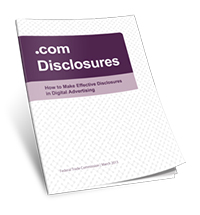The Federal Trade Commission, together with the Idaho Attorney General, will file a complaint in federal district court seeking to block St. Luke’s Health System, Ltd.’s acquisition of Idaho’s largest independent, multi-specialty physician practice group, Saltzer Medical Group P.A. According to the joint complaint to be filed today, the combination of St. Luke’s and Saltzer would give it the market power to demand higher rates for health care services provided by primary care physicians (PCPs) in Nampa, Idaho and surrounding areas, ultimately leading to higher costs for health care consumers.
“St. Luke’s acquisition of Saltzer Medical Group has created a dominant single provider of adult primary care physician services in Nampa, with a nearly 60 percent share of the market,” said Richard Feinstein, Director of the FTC’s Bureau of Competition. “The result of the acquisition will be higher prices for the services that those physicians provide, with costs ultimately passed on to Nampa employers and their employees.”
St. Luke’s is a not-for-profit health system with headquarters in Boise, Idaho. It owns and operates six hospitals.
Before being acquired by St. Luke’s, Saltzer was a for-profit, physician-owned, multi-specialty group located in Nampa. With approximately 44 physicians, Saltzer was the largest and oldest independent multi-specialty doctors’ group in Idaho. Its specialties include family practice, internal medicine, and pediatrics.
Effective December 31, 2012, St. Luke’s acquired all of Saltzer’s personal property and equipment. The deal transferred to St. Luke’s the power to negotiate health plan contracts on Saltzer’s behalf and to establish rates and charges for services provided by Saltzer physicians. Saltzer, on behalf of its physicians, has also entered into a five-year professional services agreement with St. Luke’s.
According to the joint complaint, St. Luke’s acquisition of Saltzer was anticompetitive and violated Section 7 of the Clayton Act and Section 48-106 of the Idaho Competition Act. It created a single dominant provider of adult primary care physician (adult PCP) services in Nampa, with the combined entity commanding nearly a 60 percent share of that market. In addition, an alternative network of health care providers that does not include St. Luke’s/Saltzer’s primary care physicians becomes far less attractive for employers with employees living in Nampa. he FTC and Idaho Attorney General allege that the newly combined primary care practices will give St. Luke’s greater bargaining leverage with health care plans, with higher prices for services eventually passed on to local employers and their employees.
Health plans serving Nampa have been able to resist some of St. Luke’s demands for higher rates for health care services to date. The complaint states that they still have a credible outside option – a network that includes physicians from Saltzer and St. Alphonsus, a health system that competes with St. Luke’s. The ability of health plans to put together an alternative network of adult PCP providers involving Saltzer and St. Alphonsus would be eliminated by St. Luke’s acquisition of Saltzer.
The Commission vote to join the State of Idaho in filing the complaint was 4-0. It will be filed under seal in the U.S. District Court for the District of Idaho.
Two of St. Luke’s competitors, St. Alphonsus and Treasure Valley Hospital Limited Partnership, have already filed a private action in federal district court in Boise, Idaho, seeking to block St. Luke’s acquisition of Saltzer. The district court has scheduled the private plaintiffs’ action for trial beginning on July 29, 2013, after denying their request for a preliminary injunction. The FTC’s joint complaint with the Idaho Attorney General will be filed in the same court, and the staff has been authorized to ask the district court to consolidate the two actions for discovery and trial.
NOTE: The Commission files a complaint when it has “reason to believe” that the law has been or is being violated and it appears to the Commission that a proceeding is in the public interest. The complaint is not a finding or ruling that the defendant has actually violated the law. The cases will be decided by the court.
The FTC’s Bureau of Competition works with the Bureau of Economics to investigate alleged anticompetitive business practices and, when appropriate, recommends that the Commission take law enforcement action. To inform the Bureau about particular business practices, call 202-326-3300, send an e-mail to [email protected], or write to the Office of Policy and Coordination, Bureau of Competition, Federal Trade Commission, 601 New Jersey Ave., Room 7117, Washington, DC 20001. To learn more about the Bureau of Competition, read Competition Counts. Like the FTC on Facebook, follow us on Twitter, and subscribe to press releases for the latest FTC news and resources.


